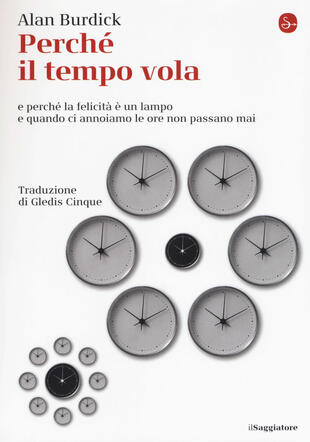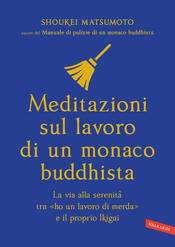

Perché il tempo vola e perché la felicità è un lampo e quando ci annoiamo le ore non passano mai
Acquistalo
Sinossi
Perché siamo più produttivi quando abbiamo molto da fare mentre nei momenti di relax ci pare di non riuscire a combinare niente? Perché ci sembra che la nostra prima storia d'amore sia durata molto più a lungo di quanto sia avvenuto in realtà? Possiamo in qualche modo controllare e plasmare la nostra percezione dello scorrere dei giorni, delle ore, dei secondi? E ancora, che forma ha il tempo? È una retta, come la freccia di Zenone e il suo tragitto impossibile? È un cerchio, come il ciclico calendario dei Maya? O ha il volto dell'astronauta Scott Kelly che, tornato sulla Terra dopo aver passato 520 giorni in orbita, era invecchiato 5 millisecondi in meno rispetto al gemello rimasto a casa? Alan Burdick ci invita a un curioso viaggio nel mondo del tempo: dalle meridiane e dalle clessidre ad acqua dell'antichità all'invenzione del secondo; dall'UTC, il Tempo Universale Coordinato, che regola tutti gli orologi del pianeta, alle scoperte sul ritmo circadiano, il nostro naturale orologio interno; dalle teorie di Einstein sulla dilatazione temporale al caso del musicista Clive Wearing che, persa d'improvviso la memoria, si ritrovò a vivere in un eterno presente. Con "Perché il tempo vola" il Saggiatore propone un'originale riflessione attorno alla dimensione che forse più di tutte influisce sulla nostra vita affettiva e lavorativa. Un percorso che attraversa la fisica, la filosofia e la letteratura, unendo sant'Agostino e Richard Feynman, il «presente specioso» di William James e i viaggi nel futuro di H.G. Wells, gli esperimenti di Michel Siffre - che trascorse più di duecento giorni in un laboratorio isolato sottoterra per indagare la percezione del tempo in condizioni di deprivazione sensoriale - e la lingua pirahà, quasi priva di riferimenti temporali. Per porre domande le cui risposte inevitabilmente aprono ad altri quesiti: perché se c'è una cosa sulla quale abbiamo sempre trovato il tempo di interrogarci è, per l'appunto, il tempo.
- ISBN:
- Casa Editrice:
- Pagine: 425
- Data di uscita: 10-05-2018
Recensioni
This book definitely stretched my brain! You don't realize how detached you have become from science in the many decades since you last sat in a science classroom until you try to internalize basic concepts of cell biology and come away with a headache and a vague Flowers for Algernon feeling. Accor Leggi tutto
I got halfway through and stopped. The first half is not a "Mostly Scientific Investigation". It should be re-titled "a cultural and historical look at time and how to measure it". I read through chapters about the history of clocks and clock towers, how institutions around the world agreed on time
I expected to enjoy this book because I am very interested in learning more about the concept of time perception. The bits on the calculation of UTC, the experiments of Michel Siffre , and circadian rhythm were interesting and informative. However, I found the sections on the present moment and perce Leggi tutto
‘Alan Burdick takes a new, interesting and mindful approach to the topic in an effort to understand what we know about that often intangible concept we call time.’ Australian Geographic ‘[Burdick] is a lucid and well-informed commentator on scientific matters. Here, he takes us by the wrist and leads Leggi tutto
Popular Non-Fiction takes on a Timeless Topic Great book, reminds me of Deep: Freediving, Renegade Science, and What the Ocean Tells Us about Ourselves by James Nestor . Basically a supremely talented writer, in this case Alan Burdick , takes on a big topic - and it leads him to lessons about life. Deep Leggi tutto
this book includes several 5-star sections but some of the other digressions really slow it down. i appreciate what the author was trying to do, and some of the studies and conclusions will stick with me for ages. i just wish some of the more tangential bits had been trimmed.
Citazioni
Al momento non ci sono citazioni, inserisci tu la prima!























